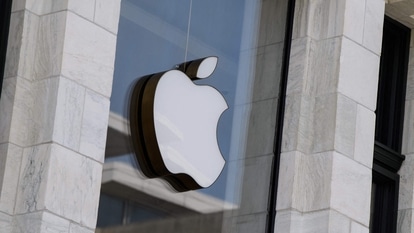Windows, Apple iPhone, Android mobile phone users? Beware! Indian govt has posted bug alert; do this now
Windows, Apple iPhone, Android mobile phone users must protect themselves against this bug. Downloads available now.

The Indian government has a warning for all Apple iPhone, Android mobile phone, Windows device users in the country that they must not ignore. The nodal cybersecurity agency, CERT-In has warned against vulnerabilities in Apple's software ecosystem, Windows OS and Google Android mobile operating system that is being exploited in the wild. These flaws in the operating systems of these companies can be used by cybercriminals to hack into these devices. So, Apple, Android and Windows users must take action to safeguard their devices by quickly downloading the available solutions to fix the problem.
The good thing, is that Apple and Google have issued software patches to fix these issues. So, all you need to do to safeguard yourself from these bugs is to download the latest version of operating system updates available for them.
Also read: Looking for a smartphone? Check Mobile Finder here.
Android
CERT-In said that a vulnerability has been reported in the Signal application of Android that could result in sending random images along with the intended ones to the recipient. The agency recommends that users download the Signal Version 5.17.3 for Android from the Google Play Store to prevent any privacy breach.
Windows
Coming to Windows devices, CERT-In has reported a vulnerability in Windows OS that could allow a local attacker to gain elevated privileges on the target system, which includes extracting and leveraging account password hashes, and discovering original installation passwords. The vulnerability that is rated high by the organisation has been registered by Microsoft as CVE-2021-36934. It affects Windows 10 Version 1809 for 32-bit Systems, ARM64-based systems and x64-based systems, Windows 10 Version 1909 for 32-bit Systems, ARM64-based systems and x64-based systems, Windows 10 Version 2004 for 32-bit Systems, ARM64-based systems and x64-based systems, Windows 10 Version 20H2 for 32-bit Systems, ARM64-based systems and x64-based systems, Windows 10 Version 21H1 for 32-bit Systems, ARM64-based systems and x64-based systems, Windows Server 2019, Windows Server 2019 (server core installation) and Windows Server, version 2004 (server core installation). Microsoft has confirmed that this vulnerability hasn't been exploited so far.
Apple devices
Lastly, the Apple devices. The cybersecurity agency has reported a vulnerability in iOS and iPadOS that could be exploited by a remote attacker to execute arbitrary code and gain elevated privileges on targeted systems. The agency says that the attacker can use this vulnerability ‘to gain kernel privileges using maliciously crafted apps. This bug affects devices running on Apple macOS Big Sur versions prior to 11.5.1, Apple iOS and iPadOS versions prior to 14.7.1, iPhone 6s and later, iPad Pro (all models), iPad Air 2 and later, iPad 5th generation and later, iPad mini 4 and later, iPod touch (7th generation) and macOS Big Sur. Apple has recently released security updates to fix this bug.
Catch all the Latest Tech News, Mobile News, Laptop News, Gaming news, Wearables News , How To News, also keep up with us on Whatsapp channel,Twitter, Facebook, Google News, and Instagram. For our latest videos, subscribe to our YouTube channel.

























